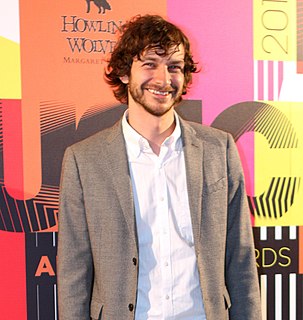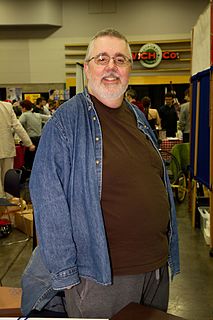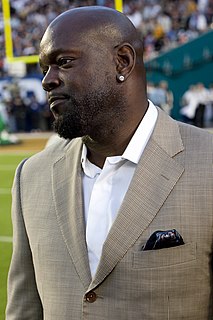A Quote by Neil deGrasse Tyson
Part of what it is to be scientifically-literate, it's not simply, 'Do you know what DNA is? Or what the Big Bang is?' That's an aspect of science literacy. The biggest part of it is do you know how to think about information that's presented in front of you.
Related Quotes
Part of what it is to be scientifically-literate is how you think about information that's presented in front of you. I think that's the great challenge. You have people who believe they do know how to think about the information, but don't, and they're in the position of power and legislation. You can't base a society on non-objectively verifiable truth. Otherwise, it's a fantasy land and science is the pathway to those emerging truths that are hard-earned and that some have taken decades, if not centuries, to emerge from experiments all around the world.
People have now been absorbing only that they agree with. You know, part of it is if you're liberal, you consume liberal information. If you're a conservative, you consume conservative information. And there's a certain stridency in both that you know everything, and if somebody doesn't agree with you, you think they don't know what they're talking about, and you become intolerant.
The value of science is not simply what the next model of the iPod you will buy next week, but its real value comes about when it's time to distinguish reality from everything else. And to be scientifically literate is to be trained in what it is, to recognize your own frailty as a data-taking device.
The physical part was one thing. Whatever - I broke my face; that'll heal. The mental aspect was the biggest shock to the system. You just don't know how to experience stuff like that. You don't have any control over it, either. It's just how your body and brain reacts to something like that happening.
A big part of making music is the discovery aspect, is the surprise aspect. That's why I think I'll always love sampling. Because it involves combining the music fandom: collecting, searching, discovering music history, and artifacts of recording that you may not have known existed and you just kind of unlock parts of your brain, you know?
I love the world the Lord has created; I love the mountains, the rivers, the valleys, the skies. I love the forests, the fields, the flowers. I love the mysteries of evolution and dna and the big bang. I want to know the majesties of the Lord's Creation. I cannot close my eyes to all this. I cannot turn away from science and scientific exploration.

































